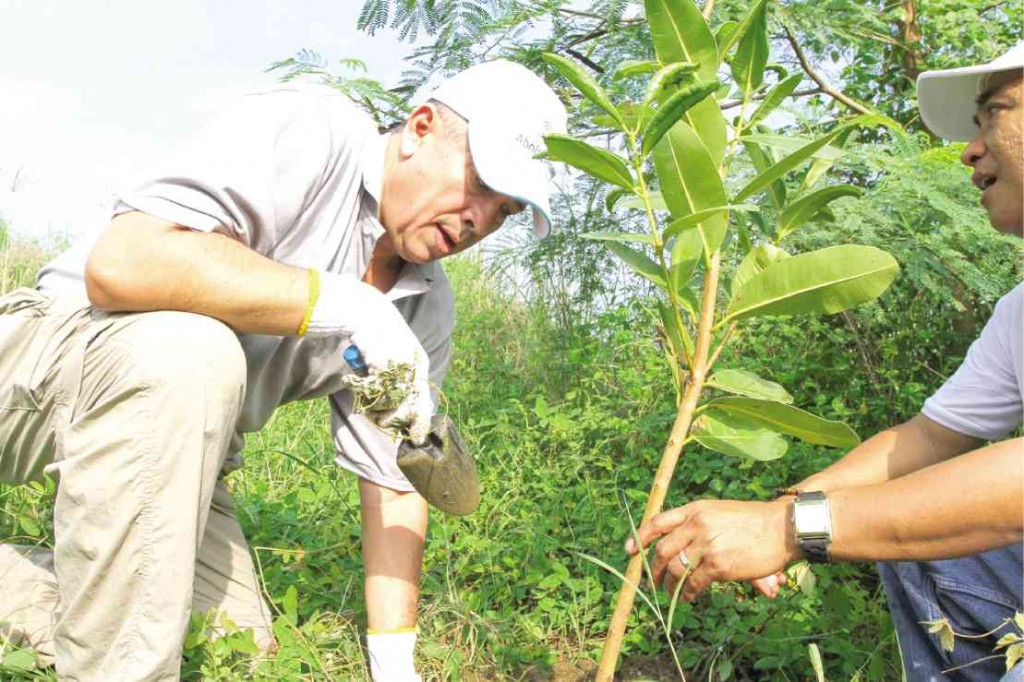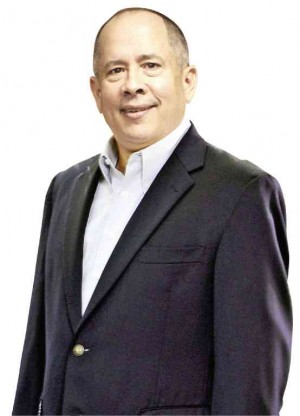Winning, growing the Aboitiz way
AT THE end of the first world war, Ramon Aboitiz was agonizing over his company’s fate.
The fledgling Aboitiz y Cia, which traces its beginnings to the late 1800s as a small family enterprise trading hemp in Palompon, Leyte, was saddled with what was then an enormous debt of P2 million.
Wartime requirements had deflated, sending abaca prices tumbling.
This left Aboitiz y Cia with tons of overpriced abaca funded by borrowings and there was no chance of quickly paying off the debt, let alone recovering its investment.
Advisers told the patriarch then that it would be a formidable challenge to repay the loan.
Article continues after this advertisementOne alternative then was to just declare bankruptcy.
Article continues after this advertisementAboitiz decided, however, to take the more difficult road and pay back the loan, no matter how long it would take.
He said then: “The biggest fortune I have is my word and my reputation. Money can be lost and recovered but once your name is lost, one’s word is worthless and one is truly finished.”
For the proud leader of the growing family enterprise, a serious attempt had to be made to pay back the creditors and establish the company’s viability, if it again wanted to do business in Cebu.
It took 20 years to pay off the entire P2 million, but it was a worthwhile price to pay to be true to what the group valued most, its word of honor.
This story about the “defining moment” in the history of the Aboitiz Group is one that has been told a thousand times and will be told again, said Aboitiz Group CEO Erramon I. Aboitiz, and one of the grand nephews of Don Ramon.
Aboitiz said that decision laid the firm foundation that supports what is now one of the biggest conglomerates in the Philippines, with over 28,500 employees all over the country.
Last year, the holding firm Aboitiz Equity Ventures posted a net profit of P18.4 billion.
“The circumstances that almost killed us, actually gave birth to a philosophy that is totally ingrained in the whole organization,” Aboitiz told the Inquirer Group’s corporate officers during the CEO Forum in the Inquirer headquarters.
That Aboitiz philosophy was built around the legacy of integrity.
“We carry on Don Ramon’s legacy of integrity in its highest form, always safeguarding our reputation, what we consider our most valuable asset. It took us generations to build, grow and nurture it. Everyone considers it our responsibility to ensure that this legacy will continue to be upheld in succeeding generations,” says Aboitiz.
This reputation for integrity has helped the company expand and diversify from hemp trading to shipping, power generation and distribution and banking.
“We were driven by our mission: To Be the Best at What We Do. This meant delivering quality products, excellent service and, at the same time, be the low-cost producer,” says Aboitiz.
This also meant having to review the direction the company is headed in to prepare it for the next stage of growth, and doing so required the letting go of companies and venturing into new territories.
One of the major turning points came in the early 1990s, when the Aboitiz Group saw the global economy expanding at a furious pace and globalization beginning to take shape. It did not want to be left behind, thus in 1994, Aboitiz Equity Ventures went public.
“Our IPO was the inflection point that fueled our company’s growth ambitions,” shares Aboitiz.
These growth ambitions required the company to take a more strategic approach to its expansion, rather than the entrepreneurial approach that had worked in the past, one that saw the Aboitiz Group going in and out of companies.
“Amid our success, we felt that for us to be competitive over the long term and in a global economy, the entrepreneurial approach that had worked in the past would no longer cut it. Diversification was costing us valuable financial and organizational resources. We knew it was time for us to be more strategic,” he says.
In the process, the group divested out of non-core businesses and channeled proceeds to core business, including power, banking, food and land, where it could add more value to and consequently control its destiny.
One of the biggest that it had to give up was its units in shipping, which is one of the industries it was most associated with through Aboitiz Shipping and then WG&A, formed in 1995 following the merger of the Aboitiz Shipping group with William Lines and Carlos Gothong Lines.
Aboitiz says that like most relationships, the merger started with big plans and bright optimism, but divergent points of view, contrasting cultures and dissimilar management styles led to its buying out its partners in the business.
“If there is any lesson we have learned from this experience, it is that mergers of businesses with different cultures and value systems is a difficult road to tread. Divergent cultures and value systems will compromise the ability of your organization to attain its goals. Energies will be spent on trivial matters that will slow you down, if it doesn’t stop you altogether,” he says.
In 2010, it sold its interest in Aboitiz Transport System to streamline its business and enhance focus on its core units.
Last year, it completely divested its transport business when its sold its stake in Aboitiz Jebsen.
“The transport business had been in the family for over a hundred years and it was what Aboitiz was known for,” Aboitiz says, “What was the change philosophy behind this decision? In making our decision to sell our transport businesses, we kept emotions aside in our quest for long-term shareholder value.”
Setting aside emotions is a difficult task that the Aboitiz group found itself doing over the years, especially following the period of its rapid expansion from 2007, with the company pouring substantial time and resources into boosting its generation and distribution portfolio as a result of the deregulation of the power sector.
But as the group expands, Aboitiz says the legacy of giving back to the community, instilled in them by their forefathers, will continue to live on through the Aboitiz Foundation.
“As businessmen, there is no doubt we seek profits and a return on our capital. We, however, are equally guided by a sense of purpose that goes beyond just making money,” he says.
Through the years, its CSR strategy has evolved from one that involved simple check writing or purely philanthropic activities, to more sustainable programs with longer-term benefits that generative positive sustainable impact on a national scale.
The Aboitiz Group is pursuing these efforts without losing sight of what it deems to be “the Aboitiz way,” the core values and beliefs that have allowed it to confront the rapidly changing business environment.
For the Aboitiz Group, these core values include keeping alive its “passion for better ways” and not losing sight of its value of sustainability.
“Our thinking is clear: Sustainability is at the core of our growth story, anchored on our philosophy that we can do well by doing good, always making the right, long-term decisions that balance the interests of people, planet and profit,” he says.
“[We are] driven by our resolve to make Aboitiz a truly sustainable enterprise that we can entrust to future generations,” Aboitiz says.

